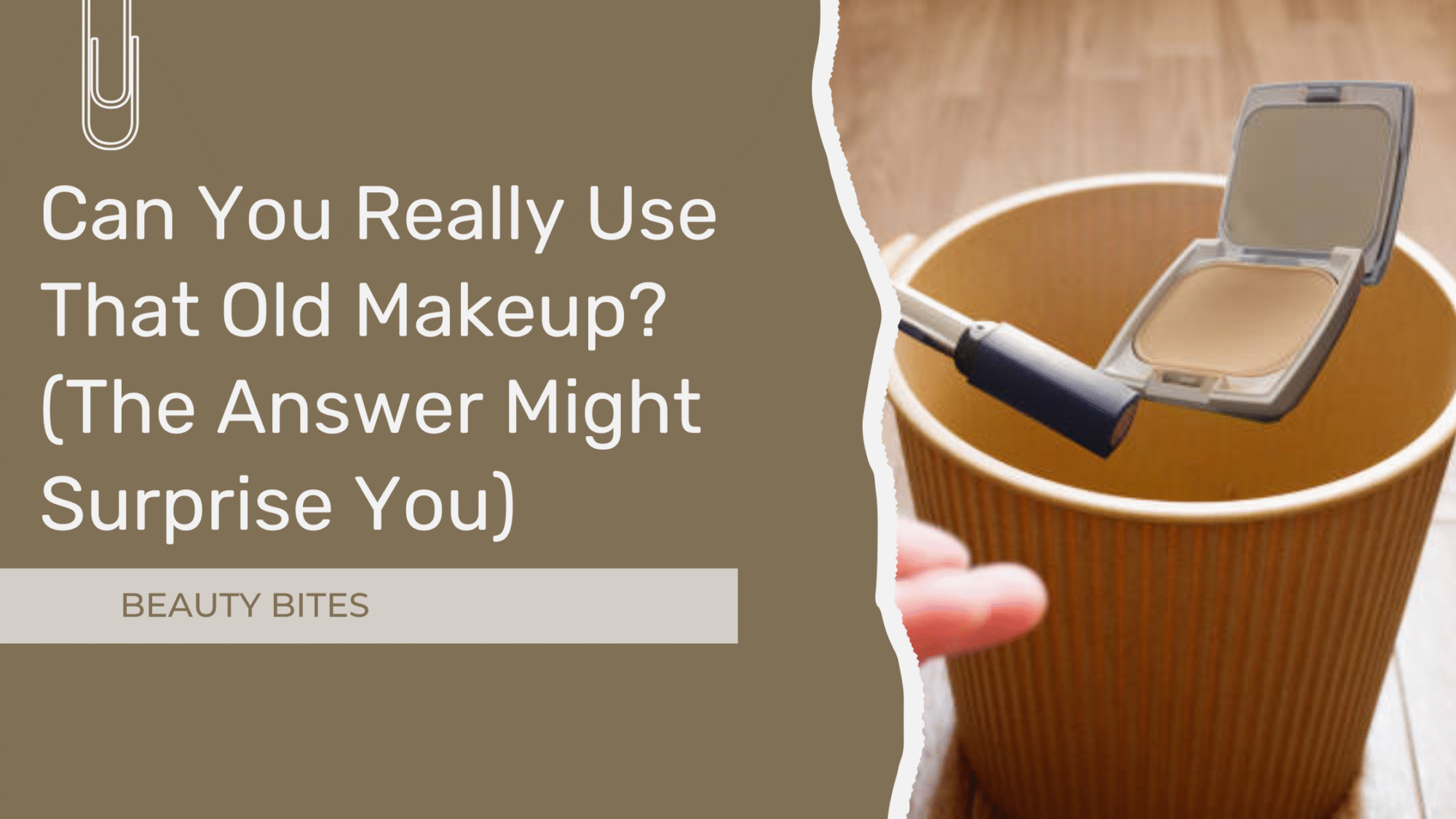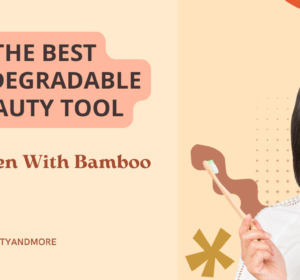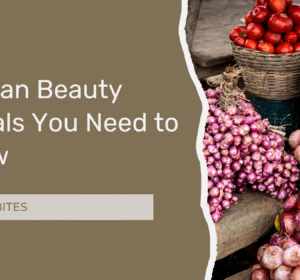We’ve all been there: discovering a hidden stash of old makeup or skincare products that we completely forgot about. The first question that comes to mind is, “Can I still use this?” Whether it’s a foundation that’s been gathering dust for a while or a tube of moisturiser that’s past its expiration date, it’s easy to wonder if using expired beauty products is harmful. While it’s tempting to squeeze out that last bit of your favourite lotion or swipe on that old lipstick, the truth is more complex. In this post, we’ll explore the potential risks of using expired makeup and skincare products, how to identify expiration dates, and whether it’s safe to continue using them.

What happens to expired makeup or skincare products?
When makeup or skincare products expire, they can lose their effectiveness and potentially cause harm to your skin. Over time, the chemical composition of beauty products changes, which can lead to:
Decreased Effectiveness: The active ingredients in skincare products, such as vitamins, antioxidants, and preservatives, break down over time, meaning the product may no longer provide the intended benefits.
Risk of Irritation: As products degrade, they can become more likely to irritate your skin. Expired products can harbour bacteria, mould, or fungi, which can lead to infections, rashes, or allergic reactions, especially if your skin is sensitive.
Changes in Texture and Smell: Expired products often change in consistency, colour, or scent. A change in texture, like clumping or separation, can be a sign that the product is no longer safe to use. Similarly, if the product starts to smell off or rancid, it’s a clear indication that it should be discarded.
How to Identify Expired Makeup and Skincare Products
Look for Expiration Dates
Some makeup and skincare products have a printed expiration date on the packaging. This is the easiest way to know whether a product is safe to use. However, not all products have this, especially if they’re not regulated by certain standards, like some cosmetics.
Check for the PAO (Period After Opening) Symbol
Many products come with a “PAO” symbol—a small jar icon with a number inside, such as 12M, 24M, or 36M. This indicates how long the product is safe to use after opening it. For example, if a moisturiser has a PAO of 12M, it means it should be used within 12 months of opening.
Changes in Appearance
Pay attention to changes in the colour, texture, or smell of the product. For instance, if a foundation becomes streaky or the pigment separates from the liquid, it’s a sign the product has expired. For skincare, if the product starts to smell sour or rancid, it’s best to dispose of it.
Packaging Damage
If the packaging is damaged, such as broken seals or cracked containers, the product may have been exposed to air, moisture, or bacteria, which can lead to contamination and spoilage.
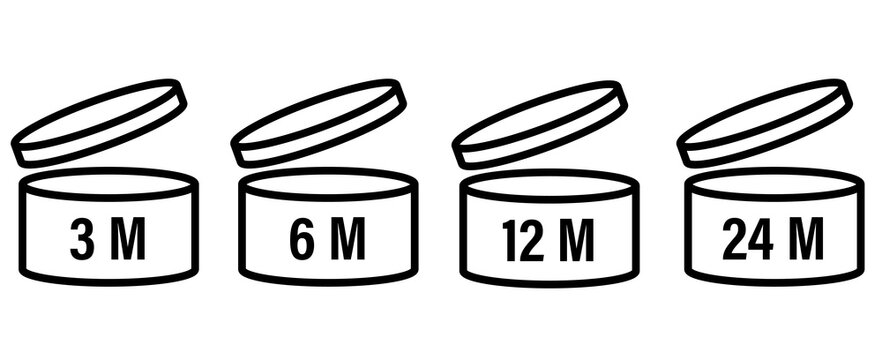
Which Products Are Most Affected by Expiration?
Skincare Products
Skincare products, especially those with active ingredients like Vitamin C, retinol, and peptides, are highly sensitive to expiration. These ingredients can lose their potency over time and even become ineffective or irritating. Products like cleansers, toners, and moisturisers typically have a shorter shelf life compared to serums or oils, especially if they contain preservatives.
Makeup Products
Makeup items like foundation, mascara, and liquid eyeliner tend to expire more quickly than powders, which have fewer preservatives. Mascara, for instance, has a short shelf life (usually 3 to 6 months) due to its exposure to bacteria from the eye area. Lipsticks and lip glosses can also harbour bacteria, especially when the formula has changed texture or the packaging is damaged.
Sunscreen
Sunscreen is especially important when it comes to expiration dates. An expired sunscreen may not provide adequate protection from UV rays, putting your skin at risk for sunburn or long-term skin damage. Always check the expiration date on sunscreen and replace it regularly to ensure maximum effectiveness.
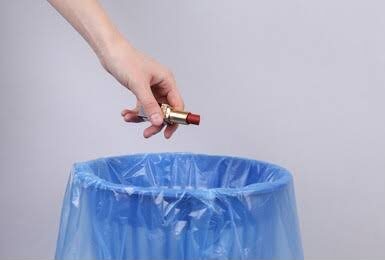
Is It Safe to Use Expired Products?
Generally speaking, it’s not advisable to use expired makeup or skincare products. Here’s why:
Bacterial Growth: Once a product has passed its expiration date, it can become a breeding ground for harmful bacteria, mould, and yeast. Using these products can introduce these microorganisms to your skin, leading to infections or irritations.
Decreased Effectiveness: Even if a product doesn’t show obvious signs of spoilage, expired formulas may not work as intended. For instance, a vitamin C serum that’s gone bad will not deliver the brightening or anti-ageing effects it once did. Similarly, an expired sunscreen won’t protect your skin from harmful UV rays, leaving it vulnerable to sun damage.
However, some products may last a little longer if they’ve been stored properly (away from heat and sunlight). If the product appears safe to use—meaning there’s no foul smell, clumping, or change in texture—it might still be okay for a short period. But always proceed with caution.
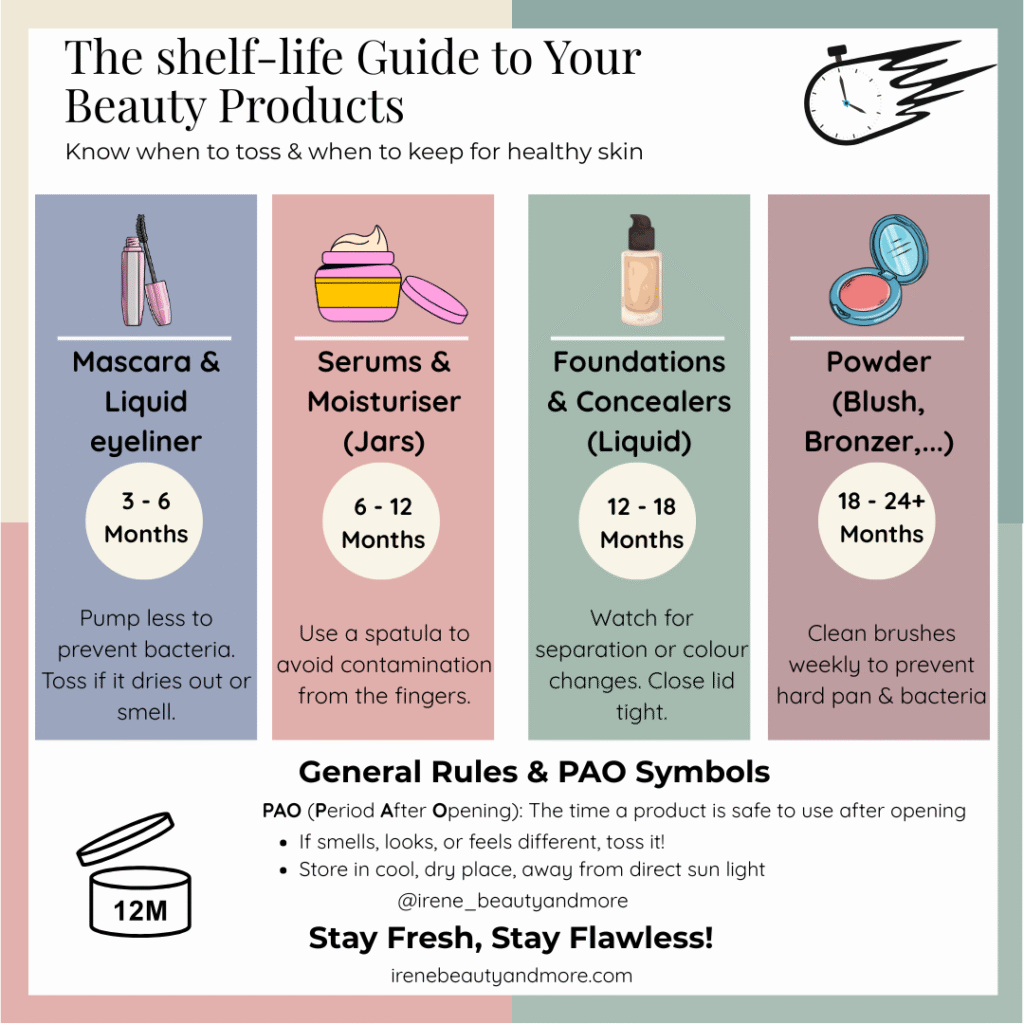
How to Properly Dispose of Expired Beauty Products
Once you’ve identified an expired product, it’s best to discard it safely. Don’t simply toss it in the bin; some beauty products contain chemicals or ingredients that shouldn’t end up in landfills. Look for local programs that offer disposal for beauty products, or check if the brand offers a recycling initiative. Alternatively, you can look up guidelines for eco-friendly disposal in your area.
Conclusion
While it can be tempting to hold on to your favourite products for a little longer, using expired makeup or skincare products comes with risks. The potential for irritation, infection, or ineffective results is not worth the risk. Always pay attention to expiration dates, check for the PAO symbol, and monitor any changes in appearance, smell, or texture. If in doubt, it’s better to toss the product and invest in something fresh. Your skin will thank you for it!
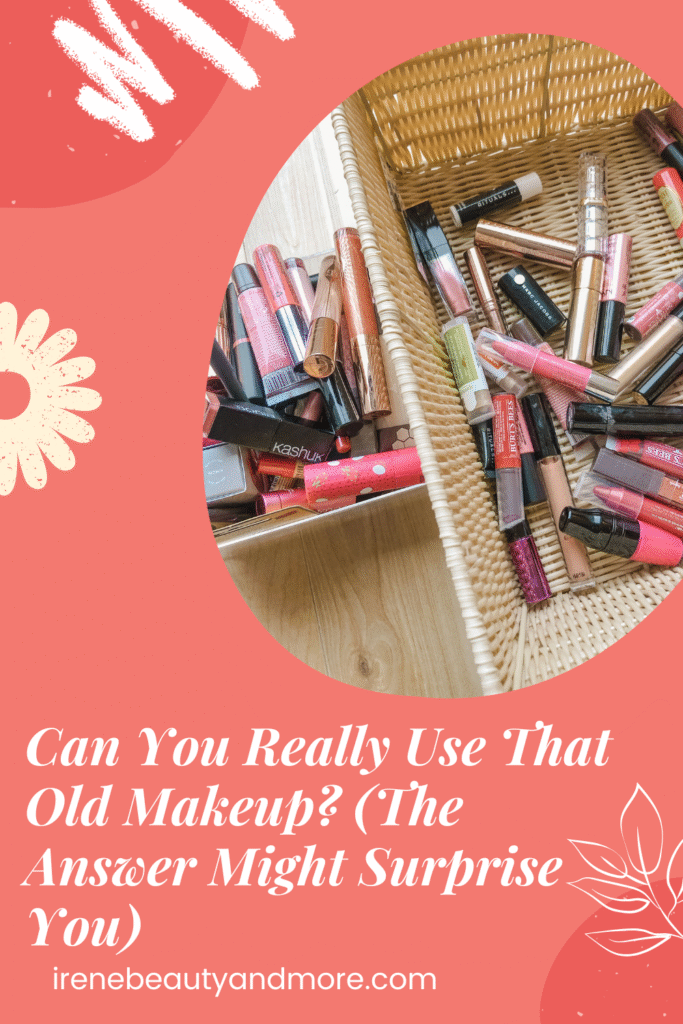
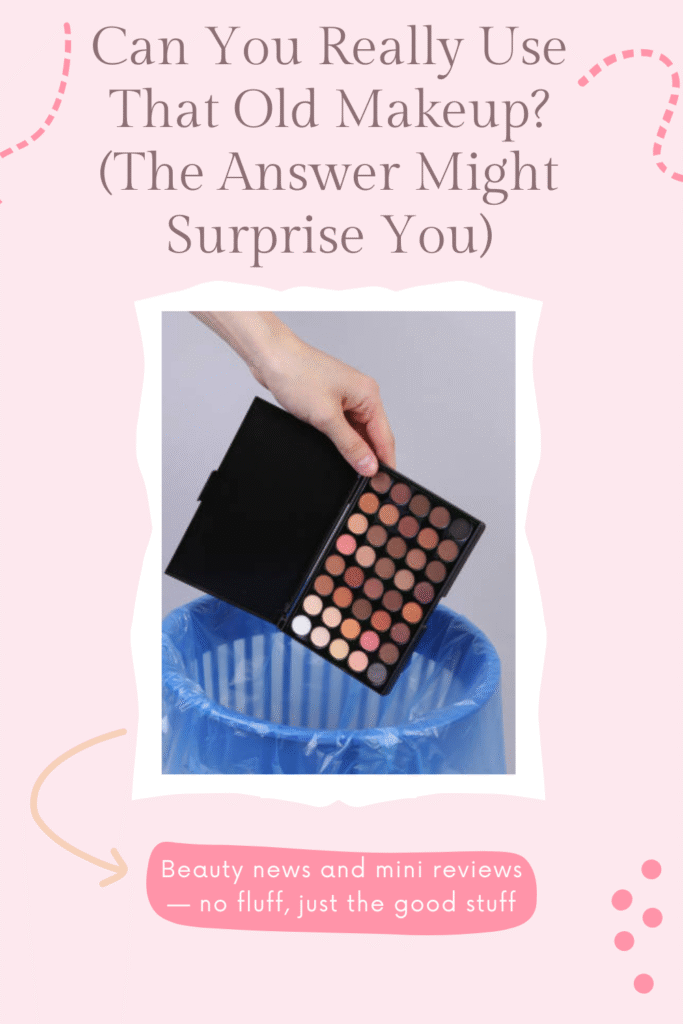
Bear in mind that some of the links in this post are affiliate links and if you go through them to make a purchase I will earn a commission. Keep in mind that I link these companies and their products because of their quality and not because of the commission I receive from your purchases. The decision is yours, and whether or not you decide to buy something is completely up to you.
